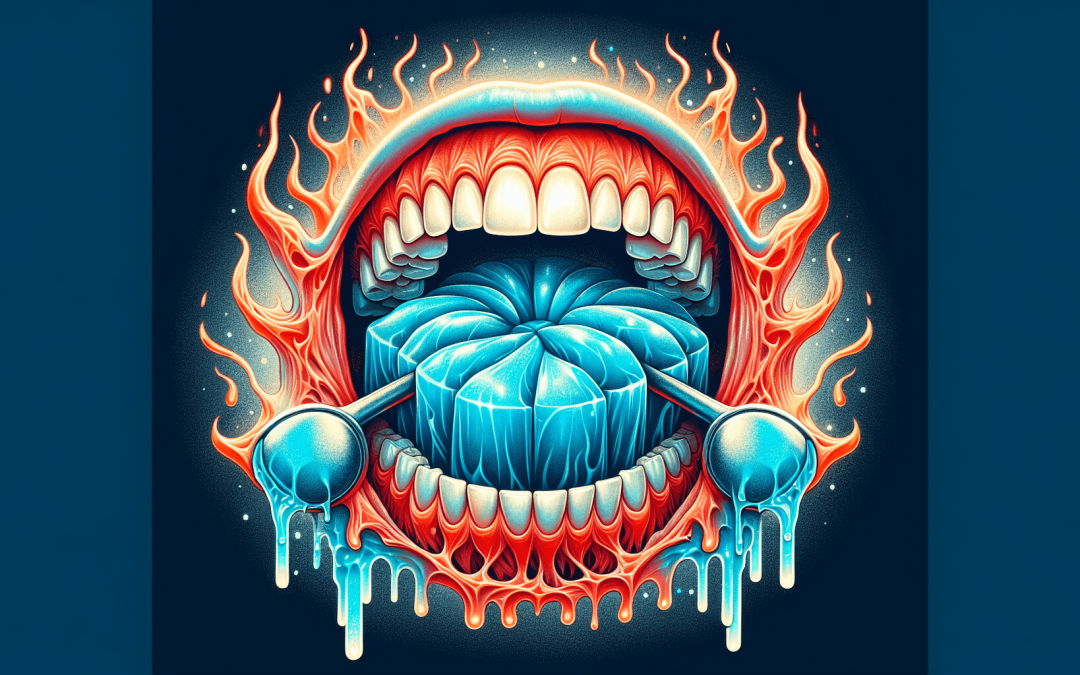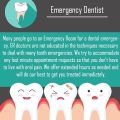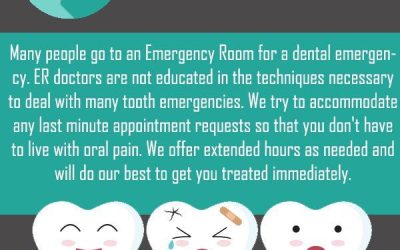So, you just got some dental work done and now you’re wondering if it’s normal for your face to resemble a chipmunk’s. Well, don’t panic just yet, because in this article, we’ll be exploring the common occurrence of swelling after dental procedures. From extractions to root canals, we’ll discuss why swelling happens, how long it typically lasts, and when you should be concerned. So grab an ice pack, sit back, and let’s get to the root of this puffy problem.
Causes of Swelling After Dental Work
Inflammation and Tissue Trauma
After dental work, such as tooth extraction, root canal treatment, or dental implant placement, your body undergoes a healing process that involves inflammation and tissue trauma. This can lead to swelling as a natural response to the injury. The tissues around the treated area become damaged and irritated, causing fluid to accumulate and resulting in swelling.
Local Anesthetic Injection Site Reaction
Another common cause of swelling after dental work is a reaction to the local anesthetic injection. The injection site may become inflamed and swollen due to irritation from the needle or a possible allergic reaction to the anesthetic itself. This localized swelling usually resolves on its own within a few days.
Post-operative Infection
In some cases, swelling after dental work may be a sign of a post-operative infection. Bacteria may enter the surgical site, causing an inflammatory response and leading to swelling, redness, and discomfort. This type of swelling is often accompanied by other signs of infection, such as increased pain, fever, and the presence of pus.
Common Procedures That May Cause Swelling
Tooth Extraction
Tooth extraction is a common dental procedure that can cause swelling. When a tooth is removed, the surrounding tissues undergo trauma, leading to inflammation and subsequent swelling. The extent of swelling depends on various factors, including the complexity of the extraction and your body’s individual healing capacity.
Root Canal Treatment
During root canal treatment, the infected pulp inside a tooth is removed, and the root canal is cleaned and filled. This procedure can also result in swelling due to tissue trauma and inflammation caused by accessing the inner part of the tooth. The swelling typically occurs in the area surrounding the treated tooth.
Dental Implants
Dental implant placement involves surgically inserting an artificial tooth root into the jawbone. This procedure can induce swelling in the surrounding tissues as a natural response to the surgical trauma. The swelling may occur around the implant site and can persist for a few days to a week after the surgery.
Periodontal Procedures
Periodontal procedures, such as scaling and root planing or gum surgery, can cause swelling due to the manipulation of the gum tissues. These procedures aim to treat gum disease and restore gum health, but they may result in temporary swelling and discomfort. The swelling should subside within a few days as your gums heal.
Duration of Swelling
Immediate Swelling
Following dental work, immediate swelling is common and usually peaks within the first 24 to 48 hours. This initial swelling is primarily caused by tissue trauma and the inflammatory response triggered by the procedure. It is important to note that the extent and duration of swelling can vary widely among individuals and depend on the specific procedure performed.
Delayed Swelling
Delayed swelling refers to swelling that occurs after the initial post-operative period. It may occur several days or even weeks after the dental procedure. Delayed swelling can be caused by factors such as infection, allergic reaction, or excessive physical exertion. If you experience delayed swelling, it is important to seek professional dental care to determine the underlying cause and receive appropriate treatment.
Managing Swelling After Dental Work
R.I.C.E Method (Rest, Ice, Compression, Elevation)
The R.I.C.E method is a common approach to managing swelling after dental work. Resting and avoiding excessive physical activity allows your body to heal more effectively. Applying ice packs wrapped in a cloth to the swollen area helps reduce swelling and alleviate discomfort. Gentle compression with an elastic bandage may help prevent further swelling. Elevating your head while lying down can also assist in reducing swelling by promoting better fluid drainage.
Prescribed Medications
Your dentist may prescribe medications to help manage swelling after dental work. Nonsteroidal anti-inflammatory drugs (NSAIDs) such as ibuprofen can help reduce swelling and provide pain relief. Be sure to follow the recommended dosage and consult with your dentist or pharmacist if you have any concerns or medical conditions that may affect the use of these medications.
Home Remedies
There are several home remedies that may help alleviate swelling after dental work. Applying a warm saltwater rinse can aid in reducing inflammation and promoting healing. Gently massaging the swollen area with a clean finger or a cold spoon can also provide some relief. Rinsing with a diluted mouthwash or using over-the-counter topical gels may help soothe oral tissues and reduce swelling temporarily. However, it is important to consult with your dentist before trying any home remedies to ensure they are safe and appropriate for your specific situation.
Warning Signs That Indicate an Issue
Severe, Prolonged Swelling
While some swelling after dental work is normal, if you experience severe and prolonged swelling that does not improve or worsens over time, it may indicate an issue. This could be a sign of a post-operative infection or a more serious underlying problem.
Increasing Pain
Increasing pain that is not relieved by prescribed pain medications or over-the-counter pain relievers may signal an issue. Pain that becomes more intense instead of gradually improving could indicate an infection or other complications.
Fever and Chills
The presence of fever and chills, along with swelling, may suggest an infection. These symptoms typically indicate that the body is fighting an infection, and it is crucial to seek professional dental care promptly.
Discharge or Pus
If you notice any discharge or pus coming from the surgical site, it is essential to contact your dentist immediately. Discharge or pus is a clear sign of infection and needs to be addressed promptly to prevent further complications.
When to Seek Professional Help
Persistent Swelling
If swelling persists for more than a week or worsens over time, it is crucial to seek professional dental help. Persistent swelling could indicate an underlying issue, such as an infection, that requires professional examination and treatment.
Uncontrolled Pain
If you are experiencing uncontrolled pain that is not relieved by prescribed medications or over-the-counter pain relievers, it is time to consult with your dentist. Uncontrolled pain can be a sign of complications or an infection that needs immediate attention.
Signs of Infection
If you notice any signs of infection, such as fever, chills, increasing pain, or the presence of discharge or pus, do not hesitate to contact your dentist. Prompt treatment is necessary to prevent the infection from spreading and causing further problems.
Signs of Allergic Reaction
If you experience severe swelling and have difficulty breathing, develop a rash, or experience other symptoms of an allergic reaction after dental work, seek immediate medical attention. Allergic reactions can be life-threatening and require immediate intervention.
Preventing Swelling After Dental Work
Maintaining Good Oral Hygiene
Maintaining good oral hygiene is crucial in preventing swelling after dental work. Brushing your teeth twice a day, flossing daily, and using an antimicrobial mouthwash can help reduce the risk of infection and minimize the likelihood of swelling.
Following Post-operative Instructions
Your dentist will provide you with post-operative instructions after dental work. It is important to follow these instructions carefully to promote proper healing and minimize swelling. Instructions may include avoiding certain foods, taking prescribed medications as directed, and attending follow-up appointments.
Avoiding Strenuous Activities
Engaging in strenuous activities, such as vigorous exercise or heavy lifting, can increase blood flow to the treated area and contribute to swelling. It is advisable to avoid such activities for a few days after dental work to allow your body to heal.
Managing Stress
Stress can affect your body’s ability to heal and may exacerbate swelling. Finding healthy ways to manage stress, such as practicing relaxation techniques or engaging in enjoyable activities, can promote overall well-being and aid in the healing process after dental work.
Factors Affecting Swelling Risk
Individual’s Healing Capacity
Every individual’s healing capacity is unique, and some people may experience more significant swelling than others after dental work. Factors such as age, overall health, and immune system function can influence the body’s response to surgery and the rate of tissue healing.
Type and Extent of Dental Procedure
The type and extent of the dental procedure performed can impact the level of swelling experienced. More invasive procedures, such as complex extractions or extensive gum surgery, may result in more substantial swelling compared to less invasive procedures.
Presence of Pre-existing Infection
If you have a pre-existing infection in the oral cavity or surrounding tissues, it can increase the risk of swelling after dental work. Infections weaken the immune system and can exacerbate the body’s inflammatory response, leading to more pronounced swelling.
When Swelling Subsides
Gradual Reduction in Swelling
Swelling typically subsides gradually over time as your body heals. After the peak swelling period, you may notice a gradual reduction in swelling each day. However, it is important to note that the rate of resolution can vary depending on the individual and the specific procedure performed.
Normalizing Bite and Function
As the swelling subsides, you may notice a gradual improvement in your bite and overall oral function. Swelling can sometimes affect the alignment of your teeth or the way your upper and lower jaws come together. Once the swelling resolves, these issues should also gradually improve, allowing you to resume normal oral function.
Conclusion
Swelling after dental work is a common occurrence due to inflammation and tissue trauma. It can also be caused by local anesthetic injection site reactions or post-operative infections. While some swelling is normal, certain warning signs indicate the need for professional help. Preventing swelling can be achieved by maintaining good oral hygiene, following post-operative instructions, and managing stress. By understanding the factors affecting swelling risk and recognizing the normal healing process, you can navigate the post-operative period with confidence and ensure optimal oral health.












